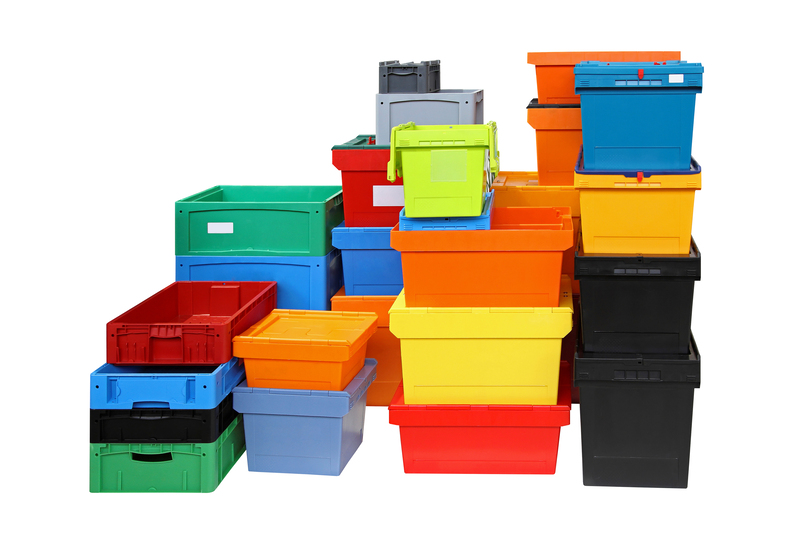Essential Packing Tips for Home Relocation
Posted on 14/10/2024
Relocating to a new home is both an exciting and daunting endeavor. It signifies new beginnings but also comes with the challenge of packing up your entire life into boxes. Effective packing is crucial to ensure the safety of your belongings and to streamline the moving process. Here, we present essential packing tips for home relocation that will make your move smoother and stress-free.
Start Early
One of the most critical steps in the packing process is to start early. Procrastination can lead to rushed packing, which often results in damaged items and forgotten essentials. Ideally, you should begin sorting and packing non-essential items at least six weeks before your moving date. Early preparation gives you ample time to categorize your belongings and pack them efficiently.

Declutter Before You Pack
Before you start packing, take the time to declutter your home. This is a perfect opportunity to get rid of items you no longer need or use. Sort your belongings into categories: keep, donate, sell, and discard. Decluttering reduces the number of items you have to pack, making the process quicker and easier.
Gather Quality Packing Supplies
Invest in quality packing supplies to ensure your items are safely transported. The basic packing materials you'll need include:
- Sturdy boxes in various sizes
- Bubble wrap for fragile items
- Packing paper or old newspapers
- Strong packing tape
- Permanent markers for labeling
- Scissors or a box cutter
Pack Room by Room
Packing room by room helps keep you organized and ensures that you don't forget anything. Label each box with the room it belongs to and a brief description of its contents. This will make unpacking much more manageable as you'll know exactly where each box goes in your new home.
Use the Right Box for the Right Items
Using the appropriate boxes for different items is crucial. Heavy items like books should go in small boxes to prevent the box from becoming too heavy to lift. Lighter, bulkier items like linens can be packed in larger boxes. For fragile items, opt for specialized boxes like dish packs that offer extra protection.
Pack an Essentials Box
An essentials box is a lifesaver on the first night in your new home. Pack a box with essential items you'll need immediately upon arrival, such as toiletries, a change of clothes, important documents, medications, and basic kitchen supplies like a kettle and coffee maker. Keep this box with you during the move so you can access it easily.
Protect Fragile Items
Fragile items require extra care during packing. Use bubble wrap and packing paper to wrap each item individually. Fill any empty spaces in the box with packing peanuts or crumpled paper to prevent items from shifting during transit. Label these boxes as "Fragile" so movers know to handle them with care.
Label Everything Clearly
Clear labeling is essential for an organized move. Label each box with its contents and the room it belongs to. It's also helpful to number the boxes and keep a corresponding inventory list. This way, you'll know if any boxes are missing and can easily find specific items when you need them.
Disassemble Furniture
Large furniture pieces should be disassembled to make them easier to transport. Follow the manufacturer's instructions for disassembling items like beds, tables, and bookshelves. Keep all screws, bolts, and other small parts in labeled bags taped to the furniture itself so you don't lose them.
Utilize Suitcases and Duffel Bags
Take advantage of the storage space in your suitcases and duffel bags. These can be used to pack clothes, shoes, and other soft items. This not only saves on packing supplies but also makes it easy to transport your clothing items without the risk of them getting dirty or damaged.
Seal and Protect Liquids
If you're packing liquids like cleaning supplies or toiletries, ensure they are sealed tightly to prevent leaks. Place each liquid container in a plastic bag before packing it. This extra layer of protection will help contain any spills and keep other items in the box clean and dry.
Keep Important Documents Separate
Keep important documents such as birth certificates, passports, financial records, and legal papers in a separate, secure place. Consider carrying these documents with you rather than packing them with the rest of your belongings to ensure they don't get lost during the move.

Consider Professional Movers
While a DIY move can save you money, hiring professional movers can save you time and hassle. Professional movers have the expertise and equipment to handle heavy and fragile items with care. Research moving companies, read reviews, and get quotes to find a reputable company that fits your budget.
Conclusion
Relocating to a new home is an intricate process that requires careful planning and organization. By starting early, decluttering, and using quality packing supplies, you can ensure a smooth and efficient move. Packing room by room, protecting fragile items, and clearly labeling boxes will make unpacking in your new home a breeze. Whether you choose to move on your own or hire professional movers, these essential packing tips for home relocation will help reduce stress and make your move successful. Happy moving!





